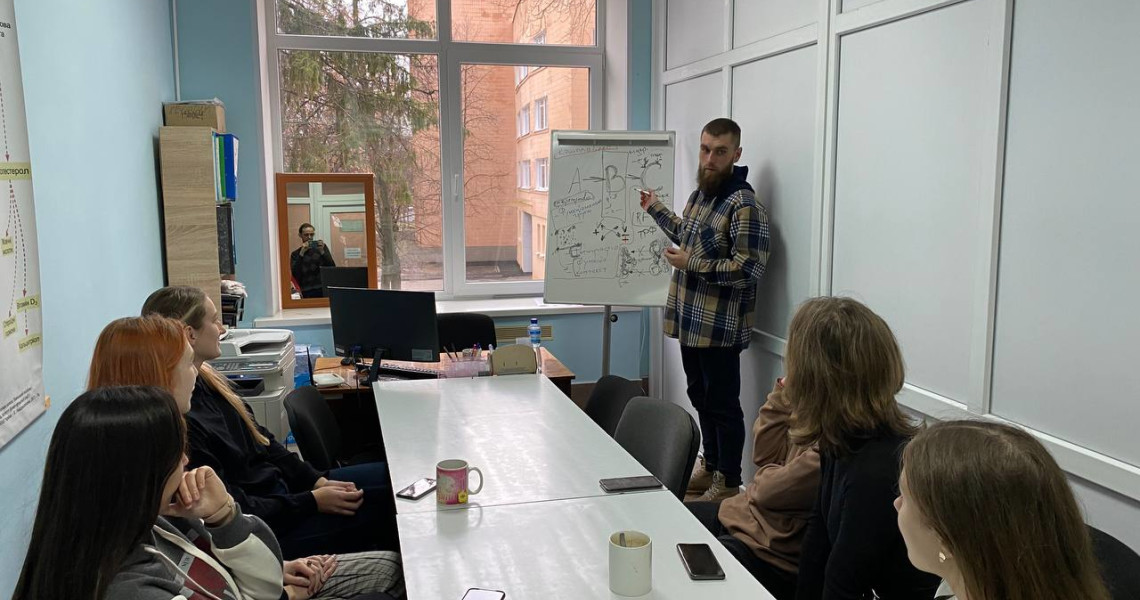У суботу 23 грудня 2023 року в кабінеті Ради студентського наукового товариства ПДМУ відбулося підсумкове засідання студентської наукової групи кафедри психіатрії, наркології та медичної психології. Раннього суботнього ранку члени СНГ спільно з куратором, доцентом Дмитром Бойком розглянули питання колективної свідомості та мови як вербальної поведінки. Під час засідання розглянуто питання мови в контексті сучасного біхевіоризму, функціональний контекстуалізм у формуванні поведінки та мови в контексті респондентного обумовлення, оперантного обумовлення і реляційного фреймування. Поряд з цим учасниками дискусії обговорювалися питання формування колективної свідомості та її зв’язок з мовою і представленням інформації.
Принагідно, теорія вербальної поведінки була спочатку висунута Б. Ф. Скіннером у 1950-х роках. У своєму дослідженні науковець припустив, що мова - це вивчена поведінка, яка реагує на зовнішнє підкріплення, і що найефективніший спосіб сприяти розвитку спілкування — звертатися до мови через аналіз цих взаємодій. Однак протягом наступних 70-ти років одна дослідники піддавали це твердження критиці, а інші удосконалювали та розвивали. Ці суперечності та постійні наукові дослідження призвели до формування теорії реляційних фреймів.
Issues of Verbal Behavior and Collective Consciousness in Focus
On Saturday, December 23, 2023, in the Student Scientific Society Council Office of PSMU, a concluding meeting of the student research group of the Department of Psychiatry, Narcology and Medical Psychology took place. Early Saturday morning, the members of the student research group, along with their curator, Associate Professor Dmytro Boyko, discussed issues related to collective consciousness and language as verbal behavior. During the meeting, topics such as language in the context of contemporary behaviorism, functional contextualism in behavior and language formation and respondent conditioning, operant conditioning and relational framing were explored. Additionally, the participants discussed the formation of collective consciousness and its connection to language and information representation.
Noteworthy, the theory of verbal behavior was initially proposed by B. F. Skinner in the 1950s. In his research, the scientist suggested that language is learned behavior that responds to external reinforcement and that the most effective way to promote communication is to address language through the analysis of these interactions. However, over the next 70 years, some researchers criticized this assertion, while others refined and developed it. These controversies and ongoing scientific investigations led to the formulation of the theory of relational frames.






